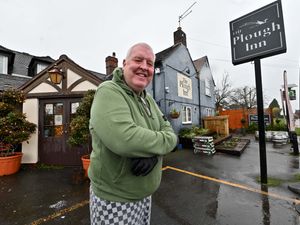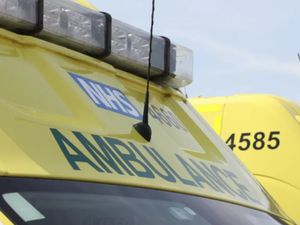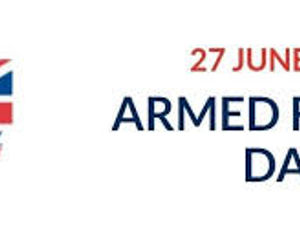Government urged to tackle 'cold home crisis' putting elderly lives at risk
The Government needs to take action and provide more support for fuel poor households to help tackle the excess winter death crisis, a trade association boss has said.
New figures have revealed there were 270 excess winter deaths in Shropshire between 2019 and 2020, excluding those from Covid-19.
The excess winter mortality report from the Office for National Statistics shows that, across England and Wales as a whole, there were 29,290 excess deaths between December 2019 and March 2020, excluding Covid.
Official figures for last winter have yet to be released.
Excess winter deaths are defined as the difference between the number of deaths recorded in the cold months – from December to March – compared with the average number of deaths in the warmer four-month periods before and after.
OFTEC, a leading trade association in the off-gas grid heating sector, has expressed concern that many of these preventable deaths could be caused by people living in cold homes, particularly in rural areas where properties are typically older, less energy efficient and harder to keep warm.
Living in cold temperatures can lead to high blood pressure and a weakened immune system, which puts older people in particular at greater risk of developing respiratory and cardiovascular disease alongside other seasonal illnesses.
Public Health England suggests that over one-fifth of excess deaths during winter are directly linked to cold homes.
Malcolm Farrow from OFTEC, said: “As we face another winter in the midst of a global pandemic, our attention is rightly placed on protecting as many people as possible from infection.
"We must not forget, however, that even without the impact of the coronavirus, thousands of people continue to die in avoidable circumstances because they live in a cold home.
“Experts believe that people who are older, live with long term health conditions or have lower average income are most at risk of winter illness or mortality.
"We have serious concerns that another cold winter, coupled with rising living costs and the ongoing risk posed by coronavirus, could make this situation much worse, as more households face a stark choice between heating and eating.”
OFTEC says that in rural areas, a disproportionate number of households live in fuel poverty, many of whom are classed as vulnerable, adding further complexity to the problem.
In Shropshire, around 33,900 households are classed as fuel poor, which means their disposable income after energy costs puts them below the poverty line and their home has an energy efficiency (EPC) rating of band D or below.
Malcolm added: “Unfortunately, we know that many of those in Shropshire who are least able to afford their heating costs live in some of the most poorly insulated properties, making them much harder to heat and keep warm.
“The Government needs to take action and provide more support for fuel poor households to help tackle the excess winter death crisis we are facing.
“It’s also crucial that, as the Government looks to make changes to how we heat our homes to reduce carbon emissions and tackle climate change, that new green heating policies protect the vulnerable and are fair and affordable for all, regardless of where their home is or the type of property they live in."





